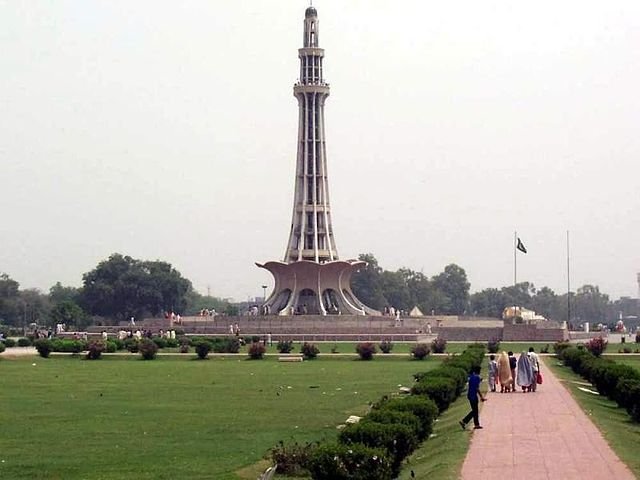In a case that has sent shockwaves through online communities and deepened tensions between two rival nations, an Indian travel vlogger has been arrested on charges of spying for Pakistan. Jyoti Malhotra, a 33-year-old YouTuber behind the popular channel “Travel with Jo,” was detained in Hisar, Haryana, last week, accused of passing sensitive military information to Pakistani intelligence. Her arrest, coming on the heels of a deadly terror attack and a brief but intense military flare-up, has cast a long shadow over the already fragile India-Pakistan relationship.
Malhotra, whose channel has over 377,000 subscribers, became a beloved figure for her heartfelt videos showcasing her travels across Pakistan. In clips posted as recently as March 2025, she explored Lahore’s vibrant Anarkali Bazaar, visited the ancient Katas Raj Temples, and shared her experience of attending a Ramadan iftar at the Pakistan High Commission in Delhi. “Crossing the Wagah border gave me goosebumps,” she said in one video, her eyes lighting up as she described the warmth of the people she met. But Indian authorities now allege those trips—two of which took place in 2023—were a front for espionage. They claim Malhotra met a Pakistani official, Ehsan-ur-Rahim alias Danish, while applying for a visa in Delhi, and later connected with intelligence operatives during her travels. On May 13, Danish was expelled from India after being declared persona non grata for suspected spying.
“She was carefully groomed to work for Pakistan,” Hisar Superintendent of Police Shashank Kumar Sawan told journalists at a press conference. Police say Malhotra shared details about Indian Army movements, using encrypted apps to communicate with her contacts, whom she saved under aliases like “Jatt Randhawa” to avoid detection. Now charged under the Official Secrets Act and Section 152 of the Bharatiya Nyaya Sanhita, her case has been handed over to the Economic Offences Wing in Hisar for further investigation.
The timing couldn’t be more charged. Malhotra’s arrest follows the April 2025 terror attack in Pahalgam, Kashmir, where 26 tourists were killed, an incident India blamed on Pakistan-based militants. In response, India launched Operation Sindoor, striking alleged terror camps across the border. The four-day conflict that followed saw missile and drone strikes claim dozens of lives on both sides before a U.S.-brokered ceasefire took hold on May 10. Amid this backdrop, Malhotra is one of several arrests in a sweeping crackdown on suspected espionage. In recent weeks, nine others have been detained across Haryana, Punjab, and Uttar Pradesh, including a student from Kaithal who allegedly shared photos of a military cantonment and a Moradabad businessman accused of smuggling goods and information.
The news has sparked a firestorm of reactions online. Fans of Malhotra are reeling, with one user sharing, “She was all about spreading love—how did it come to this?”—a sentiment that’s resonated widely. Others are less forgiving, especially given the recent bloodshed, with comments like “She betrayed her country for views” gaining traction. Malhotra’s father, a retired employee of the Haryana electricity board, stood by his daughter, his voice trembling as he told local media, “Jyoti had all the proper permissions. She just wanted to show the world we’re not so different.” Across the border, Pakistani journalist Hamid Mir raised doubts about the allegations: “A spy wouldn’t broadcast their every move on YouTube. This feels like a stretch.”
The case has ignited a broader conversation about the risks influencers face in sensitive geopolitical spaces. Authorities warn that young creators are increasingly being targeted by foreign entities, drawn in by promises of money or clout. “She got caught up chasing fame,” Sawan said, pointing to Malhotra’s finances as a red flag—her lavish trips to Bali, China, and the UAE seem to outstrip her modest YouTube earnings. But some observers urge caution, warning that the lack of transparency in such cases, coupled with rising nationalist sentiment, could lead to unfair judgments.
For India and Pakistan, this incident is a painful reminder of how deep mistrust can taint even well-meaning gestures. Travel between the two countries has always been tightly restricted, with visas hard to come by. Malhotra’s videos, meant to humanize the “other side,” are now exhibits in a criminal investigation, her devices and bank records under scrutiny. As the probe unfolds, the fallout may further strain cross-border ties, already bruised by recent violence. With both nations struggling to maintain a shaky peace, Malhotra’s story leaves a lingering question: can personal bridges survive when nations remain so far apart?


















